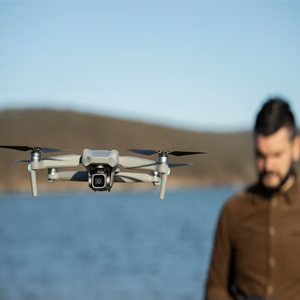Essential Skills Every Commercial Drone Pilot Needs in Australia
 Australian commercial drone pilots enjoy excellent career prospects in a thriving industry. The field grows faster each day and reshapes the scene across agriculture, media, cons-truction, and emergency services.
Australian commercial drone pilots enjoy excellent career prospects in a thriving industry. The field grows faster each day and reshapes the scene across agriculture, media, cons-truction, and emergency services.
A commercial drone licence requires Remote Pilot Licence (RePL) certification. The process takes about five days. Australia's drone pilot licence regulations cover different weight categories from under 7kg to over 150kg.
The path to become a drone pilot needs more than certification. Pilots must excel at precision flying, know their industry well, and communicate effectively while following strict regulations.
We created this piece to help you learn everything for success when enrolling in a Brisbane RePL course. These core skills will make you stand out in Australia's competitive drone industry, whether you're new or want to improve your existing abilities.
Core Technical Skills for Commercial Drone Pilots
Technical drone piloting skills distinguish hobbyists from professionals in Australia's commercial drone industry. Professional pilots must demonstrate excellent manual flight control in all weather conditions, master precise manoeuvres and smooth landings, and keep the drone stable in windy or challenging environments.
Professional operations demand a solid grasp of flight modes. Commercial pilots should excel in GPS mode that helps with stability and ATTI mode - the most hands-on way to fly where optical sensors stay off and pilots control the drone's attitude directly. Learning ATTI mode needs lots of practise but becomes vital when GPS signals fail or during indoor flights.
Professional drone pilots must know flight planning and navigation inside out. Their operations need detailed flight plans, knowledge of airspace rules, and familiarity with apps like Drone Assist to spot no-fly zones and ground hazards. Submitting proper flight plans helps create better lower airspace awareness.
Drone maintenance plays a key role in professional piloting. A regular maintenance schedule reduces costs and stops problems before they start. Basic maintenance work includes:
- Motors need checks for cleanliness and function
- Propellers require damage inspection and timely replacement
- Batteries demand proper storage and health monitoring
- Firmware and software should stay current
Commercial drone pilots also need strong troubleshooting abilities. Problems require quick assessment to find if they come from external damage, motor issues, firmware glitches, or other technical factors. RePL certification, needed to fly commercial drones over 2kg, usually needs 3 days of theory and 2 days of practical training.
Professional drone pilots keep improving these technical skills through practise and stay up to date with new technology. This approach substantially boosts their performance in different industry uses.
Essential Soft Skills for Professional Success
Success as a commercial drone pilot in Australia requires more than just technical skills. A commercial drone licence demands soft skills that shape your career path. Effective communication tops the list. Professional pilots must explain complex ideas to clients in simple terms. They need to work well with team members and create clear reports for stakeholders and regulators. Pilots should describe UAV capabilities, limitations, and regulations without technical jargon.
Attention to detail plays a crucial role in drone certification Australia. The best pilots rely on checklists and safety procedures. They stay alert to weather changes. Such precision determines whether you collect useful data or waste your flight time.
Problem-solving abilities make or break commercial drone operations. "Drones are complex machines that can encounter various challenges and situations, such as technical issues, weather conditions, regulations, and safety risks." Your ability to solve problems under pressure sets you apart from other pilots.
Time management becomes essential in this field. Professional pilots balance multiple tasks. They plan, fly, edit, and deliver projects while meeting quality and safety standards.
Collaboration skills matter more than ever since drone operations need diverse teams. Industry experts emphasise "understanding each role's objectives and constraints." You'll work among project managers, GIS specialists, engineers, and clients. Remote work has made virtual collaboration a key skill in modern UAV projects.
Decision-making confidence rounds out a pilot's skill set. Your role as Pilot in Command requires quick, independent decisions in tough situations. You must know when to stop missions for safety reasons, whatever the client pressure.
Note that technical training gives you the basics to become a drone pilot in Australia. These soft skills create the foundation for a lasting career.
Applying Skills in Real-World Drone Operations
Practical application of theoretical knowledge creates real value in the commercial drone industry. Australian drone pilots work in various industries. We focused on agriculture, construction, mining, and real estate. The agriculture sector stands to gain significant benefits from drone technology, showing how drone operations affect the economy.
Commercial pilots must follow strict operational rules in the field. CASA's regulations require pilots to stay below 120m above ground level and keep their drones in sight. They must also maintain a 30m distance from people. Breaking these rules can lead to significant penalties.
Each industry shows how versatile drone professionals need to be:
- Agricultural operations involve mapping water flow, surveying crops, identifying weed infestations, and precision application of pesticides
- Construction projects benefit from site surveys, 3D modelling, progress monitoring, and safety inspections
- Mining operations use drones for stockpile management, site monitoring, and improving worker safety
Data management plays a significant role in field operations. DroneDeploy helps professionals process imagery and analyse earthworks. The platform can automatically count objects and generate inventory reports. AUAV inSite offers cloud-based solutions that process, analyse, and deliver data securely.
A strong portfolio paves the way to commercial success. Quality projects that show various skills matter more than quantity. Your market position grows stronger when you organise content by industry, project type, or location while sharing each shoot's story.
Commercial drone pilots dedicate most of their time to pre-flight activities. These include client meetings, equipment checks, safety assessments, and risk management. Flying makes up a small part of professional drone work. Data processing, analysis, and client delivery take up most of the service delivery time.
Conclusion
A successful commercial drone pilot in Australia needs to master technical and soft skills while navigating complex regulations. The foundation of a thriving career combines precise flight control, maintenance knowledge, and excellent communication abilities. Commercial drone piloting can be a financially rewarding career choice.
Commercial drone operations go way beyond the reach and influence of just flying aircraft. Professional work mostly involves pre-flight planning, risk assessment, and post-flight data processing. Anyone serious about entering this field needs to develop a detailed skill set.
These skills are valuable in a variety of industries, from agricultural mapping to construction monitoring. Specialists who understand specific sector applications have better chances of success. A quality portfolio that shows diverse capabilities will strengthen your market position.
The drone industry changes faster than ever. Success requires commitment to excellence in all operational aspects - from equipment checks to client communication. Pilots need to stay current with technology advancements and regulatory changes through continuous education and practise.
The path to becoming a commercial drone pilot might seem challenging at first. However, Australia's drone industry offers amazing career opportunities that make the experience worthwhile. The skills outlined in this piece will help you excel in this competitive digital world and build a rewarding professional future.

